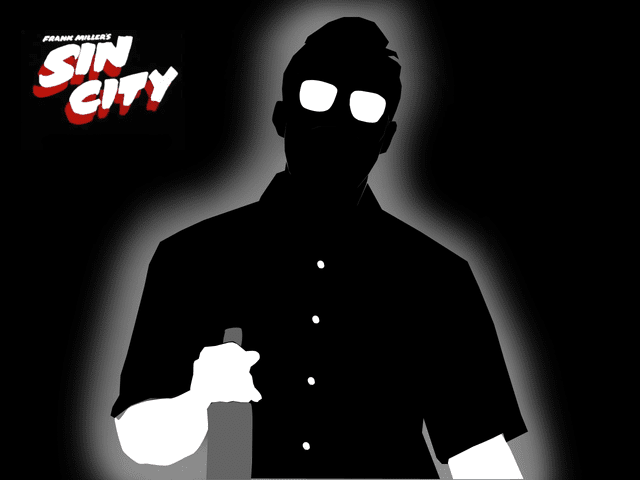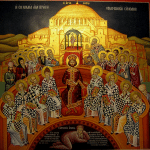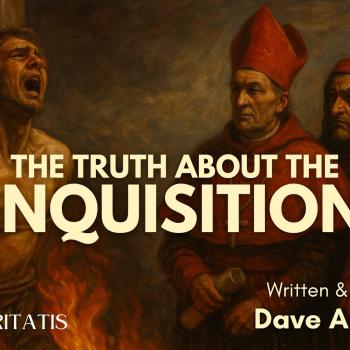Sin in the Church and Dreher’s Inadequately Explained Rejection of Catholic Doctrine

Rod Dreher, over at The American Conservative, wrote on 2-12-18:
For a TAC review, I re-read Ross Douthat’s forthcoming book To Change The Church: Pope Francis and the Future of Catholicism. It really holds up, and as this papacy falters further—now the sex abuse scandal has directly touched the Pope, in the mess with the Chilean bishop—Douthat’s book is a must-read for understanding how Francis gets into these messes, and what it may portend for the future of Catholicism.
Late last week, I received in the mail Philip Lawler’s latest book, Lost Shepherd: How Pope Francis Is Misleading His Flock. I can hardly wait to jump in.
What a huge surprise, that a guy who left the Catholic Church because of the sex scandal (the fallacy of “sin in the Church disproves the theology of the Church”) — becoming Orthodox — would be thrilled and (like a kid on Christmas Eve) “can hardly wait” to read not just one, but two pope-bashing books. Well, duh! The marvel is that Catholics flock in droves to read these hit pieces, but Dreher is perfectly understandable. Phil Lawler himself somehow (inexplicably) sees this as something to be proud of and to triumphantly report on his Twitter page: the giddy excitement of the fallen-away Catholic over his book. That must be shared with his followers! What a strange world we find ourselves in (especially we Catholics) these days.
In his article, “Why I’m Not Returning To Catholicism” (The American Conservative, 9-30-13), Dreher explained (my italics and bolding): “the primary reason I’m not a candidate for returning to Rome is because I simply do not believe Catholic doctrine any longer.” Such “Catholic doctrine” includes, of course, papal supremacy and infallibility. So of course it’s not rocket science to predict that he would love pope-bashing books, to help confirm himself in his own errors.
In his rant about American Catholicism on the ground in Time Magazine the day before, Dreher made any number of criticisms of existing Catholicism in practice: most of which I would actually agree with: as one who has always railed against religious laxity, heterodoxy, and moral compromise. But he never explains to the reader how these moral shortcomings in human beings (including bishops, who are also human, last time I checked) prove that Catholic doctrine is false.
Yet the very next day he explains that his “primary reason” for rejecting Catholicism is “I simply do not believe Catholic doctrine any longer.” Very well. I’d like to see, then, his explanations for rejecting the doctrines and the theology and ecclesiology. Noting sin does not do that, no more than St. Paul’s noting of massive sin in the Galatian and Corinthian assemblies made him stop calling and regarding them as fellow believers in the Church. Every atheist uses the fallacious “sin and hypocrisy” argument to ditch Christianity altogether: including Dreher’s Orthodoxy.
According to Dreher’s mentality, sin (adultery and murder) explained why God rejected King David and revoked His eternal covenant with him, as a prototype and ancestor of the Messiah Jesus (oh wait!: God didn’t do that . . . sorry for my slip there!). Sin — according to Dreher, were he consistent — would explain why Catholicism lost its credibility in asserting exclusive ecclesiological and papal truth claims (so we are told by many non-Catholic critics) when St. Paul rebuked St. Peter (the first pope) for hypocrisy. But oddly enough, St. Peter (who had already denied Christ three times as well) remained pope, and somehow St. Paul got to be an apostle and write much of the New Testament despite having murdered a good number of Christians before his conversion. Imagine an elected pope today who had in his past a record of persecuting and murdering Catholics!
Mark Shea was dead-on in his critique of Dreher’s forsaking of Catholicism, in a 2006 article:
Rod Dreher has posted an account of his conversion from the Catholic Church to Orthodoxy that consists, sadly, of non-reasons for converting, non-reasons that are, I fear, simply setups for further heartache in the future, not to mention unpersuasive.
For instance, I don’t believe that the personal charisma—or lack thereof–of a bishop is sufficient reason to leave the Catholic Church, just as I don’t believe the sins of bishops and priests somehow de-legitimate the nature of the one, holy, catholic, and apostolic church any more than Judas’ or Peter’s did.
. . . when Rod wonders if his revised view of the papacy—that the pope can never speak infallibly—is just an ex post facto justification for a choice made mostly on emotional grounds, I have to say, “Yeah.” Because I don’t buy Rod’s notion that something about Catholic teaching has suddenly been shown to be false. The fact is, the overwhelming bulk of Rod’s testimony regarding his Catholic-to-Orthodox conversion is not about his questions regarding the truth or falsity of Catholic teaching, but about ringing changes on how the sins and “self-satisfied” average-ness of Catholics drove him and his family to distraction and how the various comforts and beauties of Orthodoxy made them feel.
These are but some of the reasons I fear that the Orthodox communion will not, in the end, provide permanent sanctuary for Rod. For in the end, what Rod cites as unbearable in Catholicism is also true of Orthodoxy. . . . when Rod discovers the history of Orthodox sins that rival anything in the history of Catholic sins—such as a long habit of being in the pocket of the state to such a degree that many clergy and even some bishops in the Soviet Union were on the KGB payroll and routinely reported the contents of confessions to the Stalinist police–what will he do? When he discovers that the Orthodox have their own struggles with priestly abuse and episcopal cover-ups, how shall he find purity then? Will he content himself with the fact that his own particular parish is beyond reproach, so it doesn’t matter what happens in the larger Orthodox communion? If so, how is that different from the Protestant sectarianism he left when he became Catholic? . . .
Orthodoxy, like Catholicism, and like the rest of humanity, teems with sinners and mediocrities living ordinary and even profoundly wicked lives. That’s life outside the Garden of Eden. When the Orthodox reveal themselves to be remarkably like human beings, and just as prone to self-satisfied ignorance, not to mention corruption and wickedness to match any pedophile priest and episcopal enabler, what then?
My prayer is that Rod and his family will not continue to build on the sand of presumed human goodness, but will trust that the church is holy only because of the mercy of her head, not because of the goodness of her members.
Canon lawyer Edward Peters (on 4-7-15) also strongly criticized Dreher’s forsaking of Catholicism (after praising many of his columns):
Frankly, as a life-long Catholic who has seen pretty much anything Dreher saw and who has unquestionably put up with more than Dreher ever suffered (if only in terms of the liturgical insanity and catechetical nonsense of the ‘60s and ‘70s, which I suffered through, and Dreher didn’t), I may be forgiven for wondering why Dreher’s experience of the Church in the ‘90s excuses his departure without demanding the departure of all others for the sake of their integrity, but that verges toward soul-reading, . . .
Writing about his change of affiliation on 18 March 2011, Dreher again failed to explain why he rejected Catholic doctrine. He talks about everything but that: the beauty in Orthodoxy and its sublime liturgy, etc. Those are all wonderful things, but, sorry, they don’t come within a million miles of explaining why Catholic distinctive doctrines should be regarded as false teaching.
So let’s try again to find the reasons why, okay, Rod? Dreher wrote “Orthodoxy and Me” (6-22-10). Let’s see if he provides any reasons there. After reiterating a litany of sexual abuse stories that all good Catholics detest and abhor, Dreher reveals that it was yet another non-doctrinal personal-type crisis that helped lead him out of the Catholic Church:
The priest in question — orthodox and personally charismatic — lied to me in a manipulative way about how he had come to Dallas (he said the liberals in his old diocese had driven him out), and lied to my catechumen friend, who is a liberal, in the same manipulative way (he told her the conservatives had driven him out).
This was too much. When I told Julie what Father’s true background was, we were both shattered. I mean shattered. Given all that had come before, and given that we finally thought we could let our guard down, that we were among orthodox Catholics now, and we could trust them — well, something broke in us.
It would be months before we realized how broken. We returned to our old parish, and spent months going through the motions. It’s hard for me to express how spiritually depressed we were. The only strong emotion I felt about faith in those days was … anger and bitterness.
After some months of this sort of thing, he and his wife decided to visit an Orthodox Church:
[I]t was a wonderful place. The liturgy was breathtakingly beautiful. The preaching orthodox. And the people — half of them Russian, most of the others converts — could hardly have been kinder and more welcoming.
Again, that’s all great and good, as far as it goes, but it has nothing whatever to do with comparative Catholic and Orthodox doctrine. At last, he finally touches on doctrine:
I had to admit that I had never seriously considered the case for Orthodoxy. Now I had to do that. And it was difficult poring through the arguments about papal primacy.
I’ll spare you the details, but I will say that I came to seriously doubt Rome’s claims. Reading the accounts of the First Vatican Council, and how they arrived at the dogma of papal infallibility, was a shock to me: I realized that I simply couldn’t believe the doctrine. And if that falls, it all falls.
I know about such “accounts” because papal infallibility was my own primary objection to Catholicism as I considered its claims in 1990 (eventually converting later that year). I studied this very thing in great depth. They are usually written by hostile observers and strong critics of papal infallibility, like Hans Kung and Joseph Dollinger, who left the Church in 1870 over this issue, and formed the Old Catholics. Those are the sources I found and devoured.
We don’t know from this threadbare account, but I would bet good money that Dreher was reading the highly skeptical stuff from Catholic liberals and dissidents like Kung and Dollinger, and not material from orthodox Catholics who explain and defend papal infallibility. If you read only one side, you’ll come out talkin’ and believing like that side. We are what we eat. For my part, I read both sides: these accounts and Cardinal Newman’s Essay on the Development of Christian Doctrine.
If indeed Dreher only read one hostile side of the debate on papal primacy and infallibility (from disenchanted Catholics), then he was doomed to reject the Catholic doctrines, and already had formed strong emotional and personal motives to do just that. It would be like reading exclusively Democrat interpretations of Republican policies in the attempt to determine if the latter are believable and worthy of allegiance or not. It’s doomed from the start (from a Republican point of view: analogous to Catholicism in this instance).
If Dreher ever reads this piece (not likely), I’d love to learn about all the materials he studied when considering the truth or falsity of papal infallibility.
Ironically, when I was strongly considering leaving Protestantism I quickly ruled out Orthodoxy on moral grounds: having discovered that it forsook apostolic morality in its decision to countenance divorce and also (increasingly now), contraception, which it itself had considered grave, moral sin until very recently. I saw both of those things as caving into the modern relativist zeitgeist and the sexual revolution: exactly what I was trying to get away from, since it is rampant within Protestantism.
I wanted the morality of the Bible and the early Church, and it was quite impossible for me to believe that Orthodoxy possesses it, rather than Catholicism, in light of these two anomalous factors. I love my Orthodox brethren, and admire a lot about Orthodoxy, but those are the reasons why I am not an Orthodox Christian (I have many many more reasons for why I am a Catholic, that I have written about many times).
Dreher then adds, revealingly, as he continues to describe his spiritual odyssey:
I had made in my life till that point the fundamental error of conceiving of the Church as an end in itself, rather than a means to the end of becoming a saint in Christ.
That’s not Catholic teaching. It was Dreher’s own error. Hence, he can’t blame the Catholic Church for it. Nor can he blame the Catholic Church (not just the priests who sexually abused others, and any bishops who outergeously covered that up) for his own anger problem:
I became so tormented over what had happened to those children at the hands of the Catholic clergy and hierarchy that I could see nothing else but pursuing justice. And my own pursuit of justice allowed me to turn wrath into an idol. . . . over time, the anger, and my inability to master it and put it in its place, corroded the bonds that linked me to Catholicism. That is something that could happen to anybody, Catholic, Protestant, Orthodox or what have you. Be warned.
He continues:
Without quite realizing what was happening, I became a Professional Catholic, and got so caught up in identifying with the various controversies in the American church that I began to substitute that for an authentic spirituality. This is nobody’s fault but my own.
Again, this is no reason whatever to reject Catholic doctrine and to leave the Church, when he freely admits that it was his fault. As a fellow Christian (of whatever stripe), I am happy that Dreher has found his own personal peace, and gotten over his self-confessed pride, anger, and idolatry. That’s all good. We all have our crosses and our besetting sins, to embrace, and overcome, respectively. As a Catholic apologist, however, I am thoroughly unconvinced, for reasons explained above, that Dreher had anywhere near adequate justification to leave the Catholic Church and reject its doctrines (where they are different from Orthodoxy’s).
Lastly, in this 2011 article, Dreher wrote:
I had become the sort of Catholic who thought preoccupying himself with Church controversies and Church politics was the same thing as preoccupying himself with Christ. Me and my friends would go on for hours and hours about what was wrong with the Church, and everything we had to say was true. But if you keep on like that, it will have its effect.
How fascinating. And it is because here is Rod Dreher, now in February 2018, gushing over books that bash Pope Francis (even reading one of them twice!). He is, precisely (ignoring his former words of wisdom), “preoccupying himself with [Catholic] Church controversies and Church politics” and maybe even thinking that this is “the same thing as preoccupying himself with Christ.”
But it’s not. It’s arguably self-justification (“see! All this mess with Pope Francis confirms that I was right to leave after all!”), He claimed in this article that he was beyond all that, and had no wish to bash Catholicism (now, safe from its grasp and in the bosom of Orthodoxy). He even claimed that he liked it more and more, now that he has forsaken it. So why is he reveling in Francis-bashing (just like so many misguided Catholics are), like the proverbial dog that returns to its own vomit?
I think it would be good for him to ponder that, on the basis of his own ostensible “spiritual self-correction”.
***
Photo credit: image originally uploaded on
***












